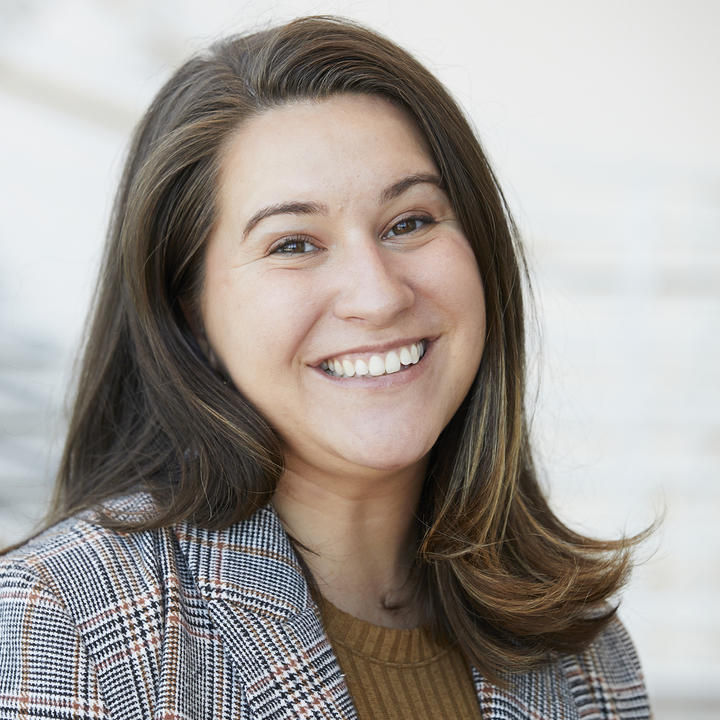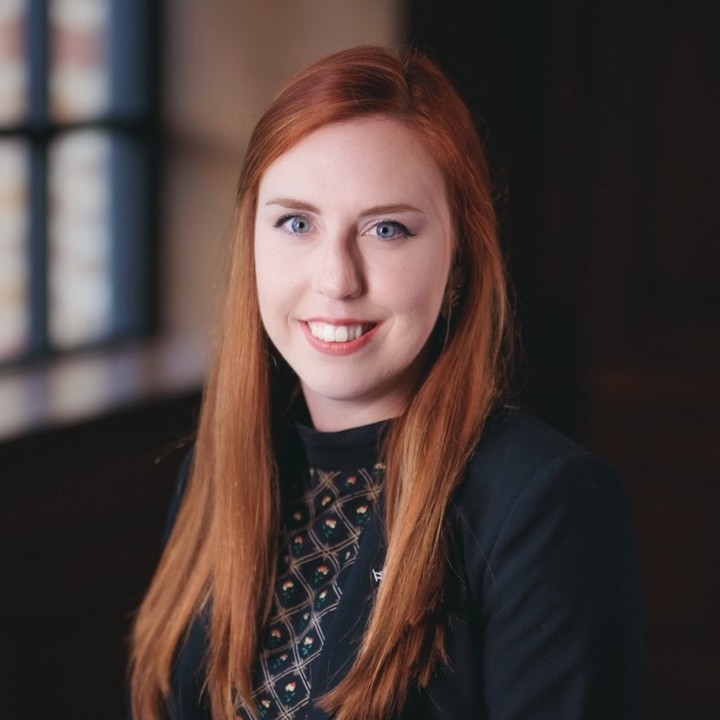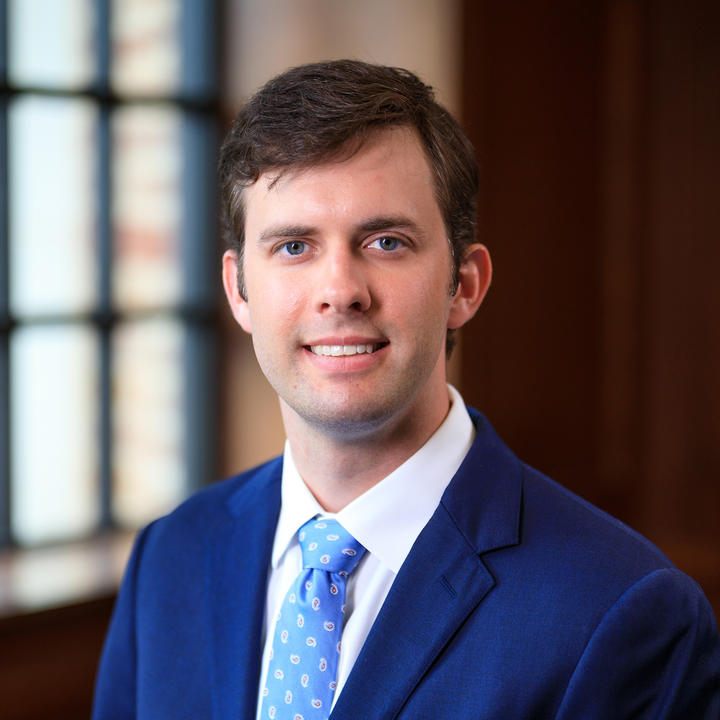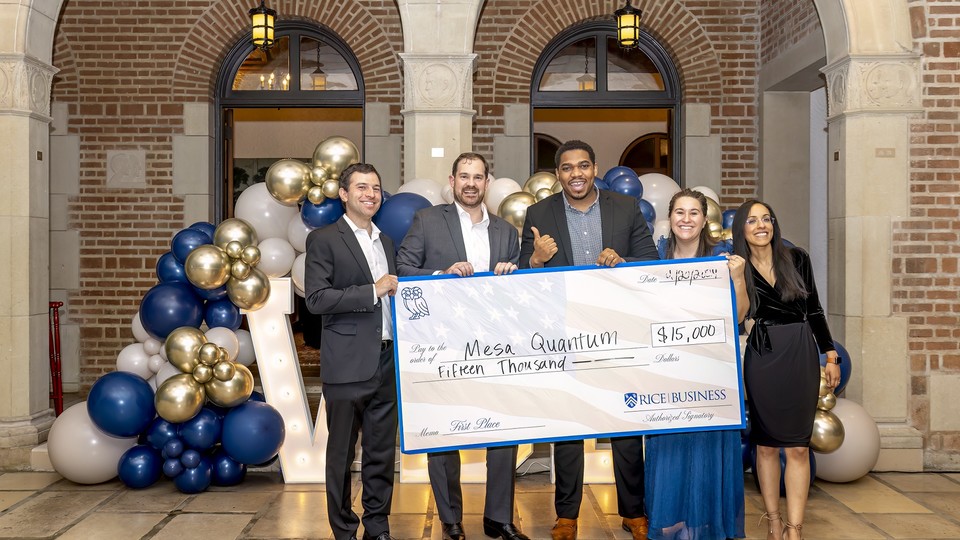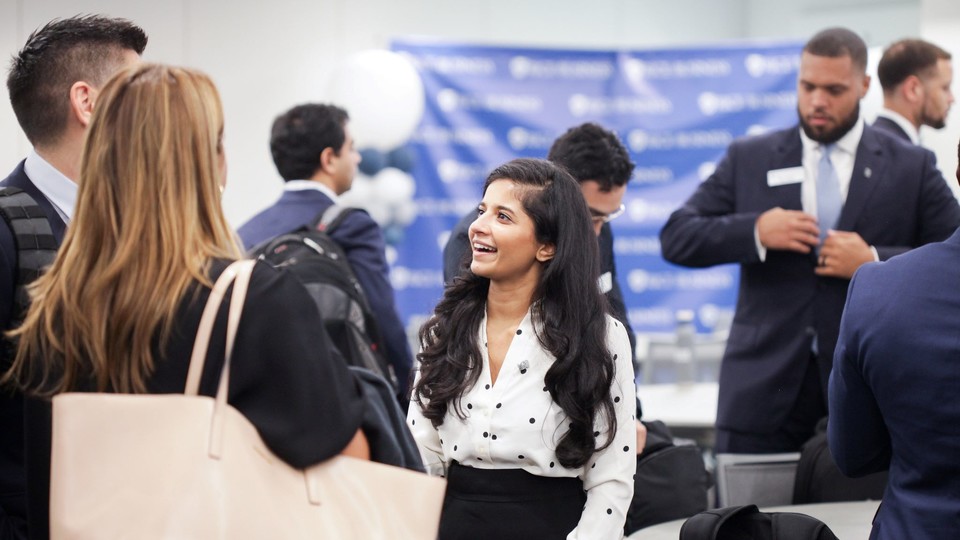Rice at ClimateCAP: Building MBA Skillsets at the Intersection of Business and Climate

We recently returned from this year’s ClimateCAP Summit — the leading MBA climate conference, where students from top business schools gather to learn, discuss and collaborate on various issues at the intersection of climate change and business.
Many people are unaware of the networking and learning opportunities ClimateCAP offers MBA students, so we want to share a glimpse into our experience with a quick Q&A. You can learn more about us and the conference at our profiles linked below.
1. What is your area of focus? What are your post-MBA career goals?
Dana Vazquez: I am concentrating in energy and entrepreneurship. I will be working at Cisco Systems in their FLEX Rising Leaders program, with a focus on sustainability and governance.
Nikki Beittenmiller: I am concentrating in energy with a focus on public and private investment in energy transition across the energy value chain. After completing my MBA, I’ll be joining Quanta Services as a member of the energy transition strategy and corporate development team.
Derek Fry: I am concentrating in energy. My goal post-MBA is to secure a job with a renewable energy developer and operator.
2. How would you describe ClimateCAP, and why did you attend?
Dana Vazquez: Every year, MBAs gather at ClimateCAP to learn, discuss and collaborate on various issues at the intersection of climate and business. I love connecting with other MBAs and have found that ClimateCAP is one of my favorite events in business school! When I was coming for my MBA, I would see people in my network attending the conference and thought it looked like a great way to build my own expertise.
Nikki Beittenmiller: I followed ClimateCAP even before starting business school, and once I got to Rice I was excited to finally participate. The summit is an awesome networking and learning opportunity. The discussions and workshops helped me connect what I was learning in class to real-world business problems. Beyond the summit, ClimateCAP offers additional resources for MBAs interested in climate, such as their MBA Academy and Fellows program.
Derek Fry: Connecting with other MBAs with similar career interests was a lot of fun and coffee chatting with sponsors opened the door for potential job opportunities.
Interested in Rice Business?
3. Who were this year’s notable speakers? What are some of your key takeaways?
Dana Vazquez: There were many incredible speakers — but I have to say the ESG workshop with Professor Jerry Davis was a definite highlight! I loved his energy, wisdom and generosity. I also really enjoyed the fireside chat with Donnel Baird, founder and CEO at BlocPower.
Nikki Beittenmiller: Hard to pick from the phenomenal speaker lineup, but I was particularly invested in the panel conversation with Jeff Blau, CEO of Related Companies, and Ryan Brown, COO of energyRe. Every part of the energy transition relies on the buildout of new energy infrastructure, and it was exciting to hear about new transmission projects that are trying to accelerate that step in the process.
Derek Fry: The speaker lineup was impressive, featuring a diverse range of experts from the energy and climate arena. My key takeaway is that irrespective of one’s profession or industry, every MBA role can contribute to climate solutions.
4. What ideas relating to your career did ClimateCAP spark?
Dana Vazquez: I loved the discussion on “First of a Kind” (FOAK) technologies and how to finance their scaling efforts through non-dilutive funds. We heard from some incredible experts in this space, including Tadeu Carneiro, CEO of Boston Metal, and Terry Grant, vice chairman at Marathon Capital. It felt encouraging to hear these experts talk about the importance of FOAK technologies and how we can move them forward.
Nikki Beittenmiller: The conference served as a timely illustration of how industry-agnostic climate change can be. While the specific business implications may differ from one company to the next, the lessons learned in one sector can provide inspiration and models for others.
Derek Fry: I found the breakout panel on clean energy supply chains particularly interesting. It provided valuable insights into the sustainability and lifecycle of mining operations and explained the supply-side resource availability of rare earth metals critical to the energy transition. Resource availability is often framed as a crisis, but the panel did an excellent job at cutting through the headlines by thoughtfully explaining fluctuations in the rare earth metal reserves/production ratios.
5. Aside from ClimateCAP, how else can Rice Business students engage with climate action and sustainability efforts?
Dana Vazquez: Houston is an incredible space to explore topics around climate, cleantech, the energy transition and more. With great organizations like Greentown Labs, Center for Houston’s Future, and the Renewable Energy Alliance Houston, there’s plenty of opportunity to tap into our local community of best-in-class experts. I encourage everyone to get involved in local efforts however they can.
Nikki Beittenmiller: First and foremost, join the Rice Business Cleantech Association! Not only does the club offer great resources for Rice MBA students interested in embarking on climate-oriented careers, but it’s also a close-knit community of students pursuing diverse projects and extra-curricular endeavors with a climate and sustainability angle.
Derek Fry: Rice Business is also home to the Rice Cleantech Innovation Competition (RCIC), an annual student-run MBA case competition focused on decarbonization and clean technology investment. Finalists and event organizers have the unique opportunity to network with students from other top business schools and interact with professionals in the sector. The competition continues to attract teams from universities nationwide and generate increasing interest among sponsors.
6. How can ClimateCAP discussions be applied to entrepreneurship and business in Houston?
Dana Vazquez: We have an incredible technical community here in Houston. With many FOAK technologies being developed in large organizations, in schools and throughout the broader community, we can and should support entrepreneurs trying to scale climate technologies that can solve important problems.
Nikki Beittenmiller: Houston is already showing the world how diverse stakeholders can come together to collaborate and innovate on solutions for some of the toughest climate problems. It is so exciting to see energy majors supporting and investing in cleantech startups coming out of places like Greentown Labs. To put ourselves on track to achieve our climate goals, we’ll need to continue supporting this kind of creative collaboration across the industry.
Derek Fry: I think these discussions are already underway in Houston. At ClimateCAP, I honestly felt that the Rice crew was far ahead of the average attendee on most topics related to energy and climate. Houston is the intellectual hub for virtually every segment of the energy industry and has a high concentration of energy know-how ranging from engineering to finance. I believe the talent pool in Houston offers a competitive advantage for both entrepreneurs launching startups and for existing businesses generating cash flow, especially for those businesses working at the intersection of energy, climate, and business.
